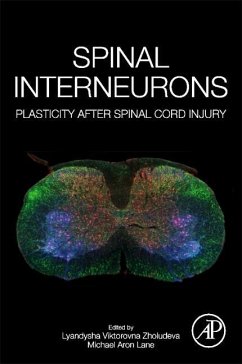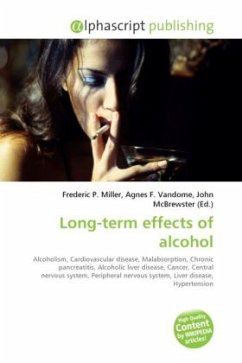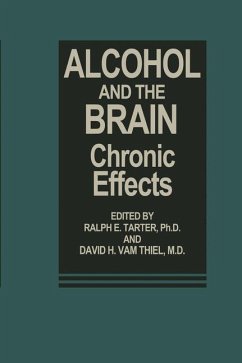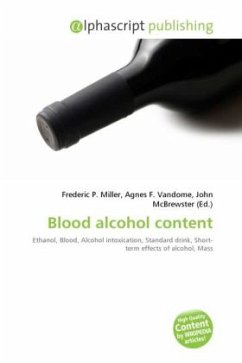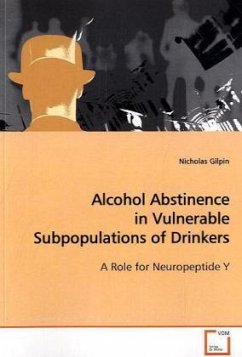
Alcohol Abstinence in Vulnerable Subpopulations of Drinkers
A Role for Neuropeptide Y
Versandkostenfrei!
Versandfertig in 6-10 Tagen
45,99 €
inkl. MwSt.

PAYBACK Punkte
23 °P sammeln!
Alcohol dependence is a debilitating disorder for theindividual and very costly for society. Becausealcoholism is such a complex disease, animal modelsare used to mimic components of the disease.Alcoholism is defined by cycles of intoxication andabstinence, resulting in the compulsion to drinkalcohol, loss of control in limiting intake, andemergence of negative emotional states. These studiesfocused on behaviors during protracted abstinence inrats genetically and environmentally susceptible toalcohol dependence. Specifically, rats selectivelybred for high alcohol preference were tested foranxi...
Alcohol dependence is a debilitating disorder for the
individual and very costly for society. Because
alcoholism is such a complex disease, animal models
are used to mimic components of the disease.
Alcoholism is defined by cycles of intoxication and
abstinence, resulting in the compulsion to drink
alcohol, loss of control in limiting intake, and
emergence of negative emotional states. These studies
focused on behaviors during protracted abstinence in
rats genetically and environmentally susceptible to
alcohol dependence. Specifically, rats selectively
bred for high alcohol preference were tested for
anxiety-like behaviors, and genetically heterogeneous
rats were made dependent on alcohol and tested for
relapse behavior. Neuropeptide Y
(NPY), an endogenous anxiolytic, was tested for its
effects on these behaviors. Anxiety-like behavior was
suppressed by NPY regardless of alcohol exposure
history. However, NPY suppressed alcohol
drinking only in rats that underwent cycles of
abstinence. These results suggest that dysregulation
of brain NPY systems is an important motivational
factor that drives alcohol consumption in vulnerable
subpopulations of drinkers.
individual and very costly for society. Because
alcoholism is such a complex disease, animal models
are used to mimic components of the disease.
Alcoholism is defined by cycles of intoxication and
abstinence, resulting in the compulsion to drink
alcohol, loss of control in limiting intake, and
emergence of negative emotional states. These studies
focused on behaviors during protracted abstinence in
rats genetically and environmentally susceptible to
alcohol dependence. Specifically, rats selectively
bred for high alcohol preference were tested for
anxiety-like behaviors, and genetically heterogeneous
rats were made dependent on alcohol and tested for
relapse behavior. Neuropeptide Y
(NPY), an endogenous anxiolytic, was tested for its
effects on these behaviors. Anxiety-like behavior was
suppressed by NPY regardless of alcohol exposure
history. However, NPY suppressed alcohol
drinking only in rats that underwent cycles of
abstinence. These results suggest that dysregulation
of brain NPY systems is an important motivational
factor that drives alcohol consumption in vulnerable
subpopulations of drinkers.









